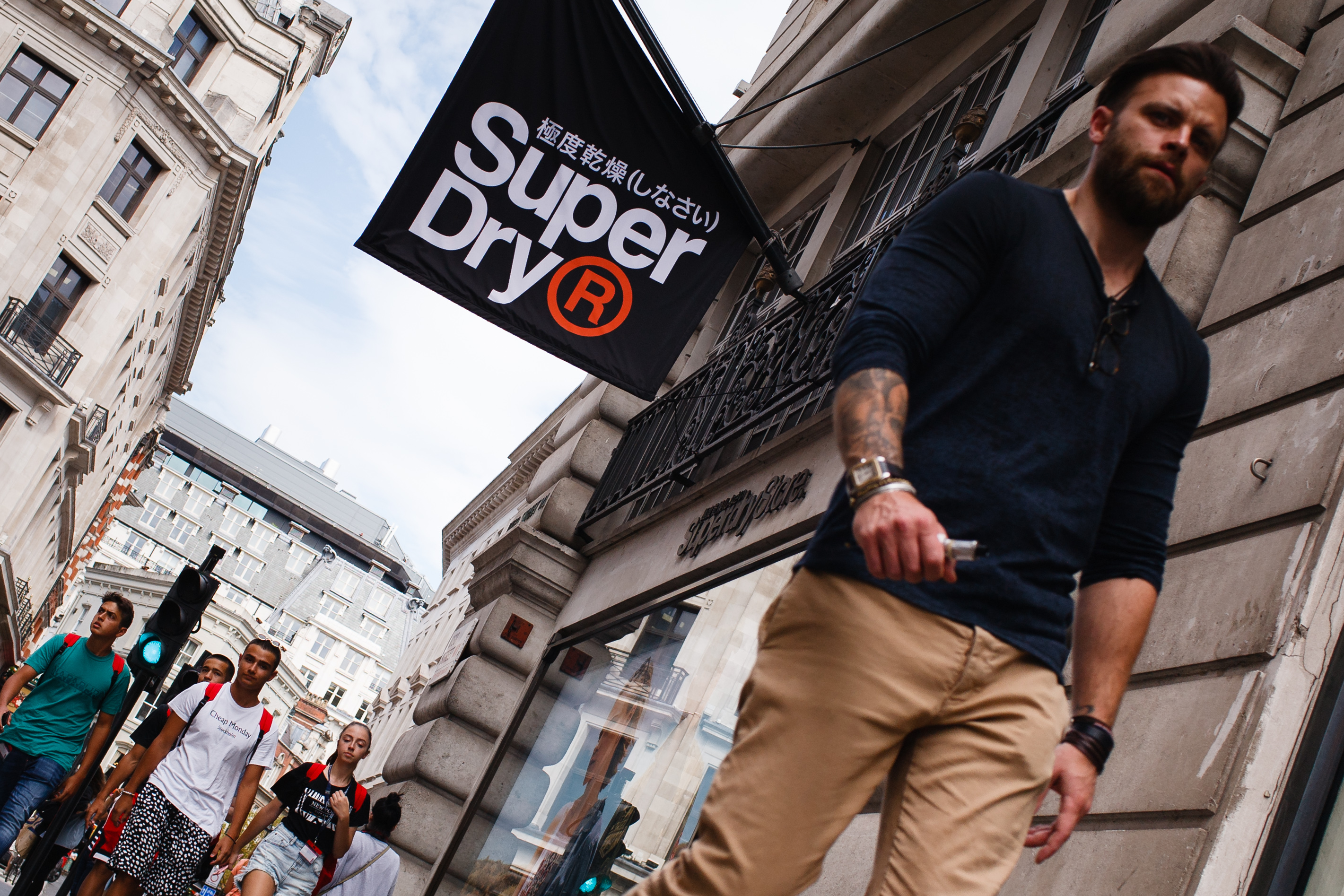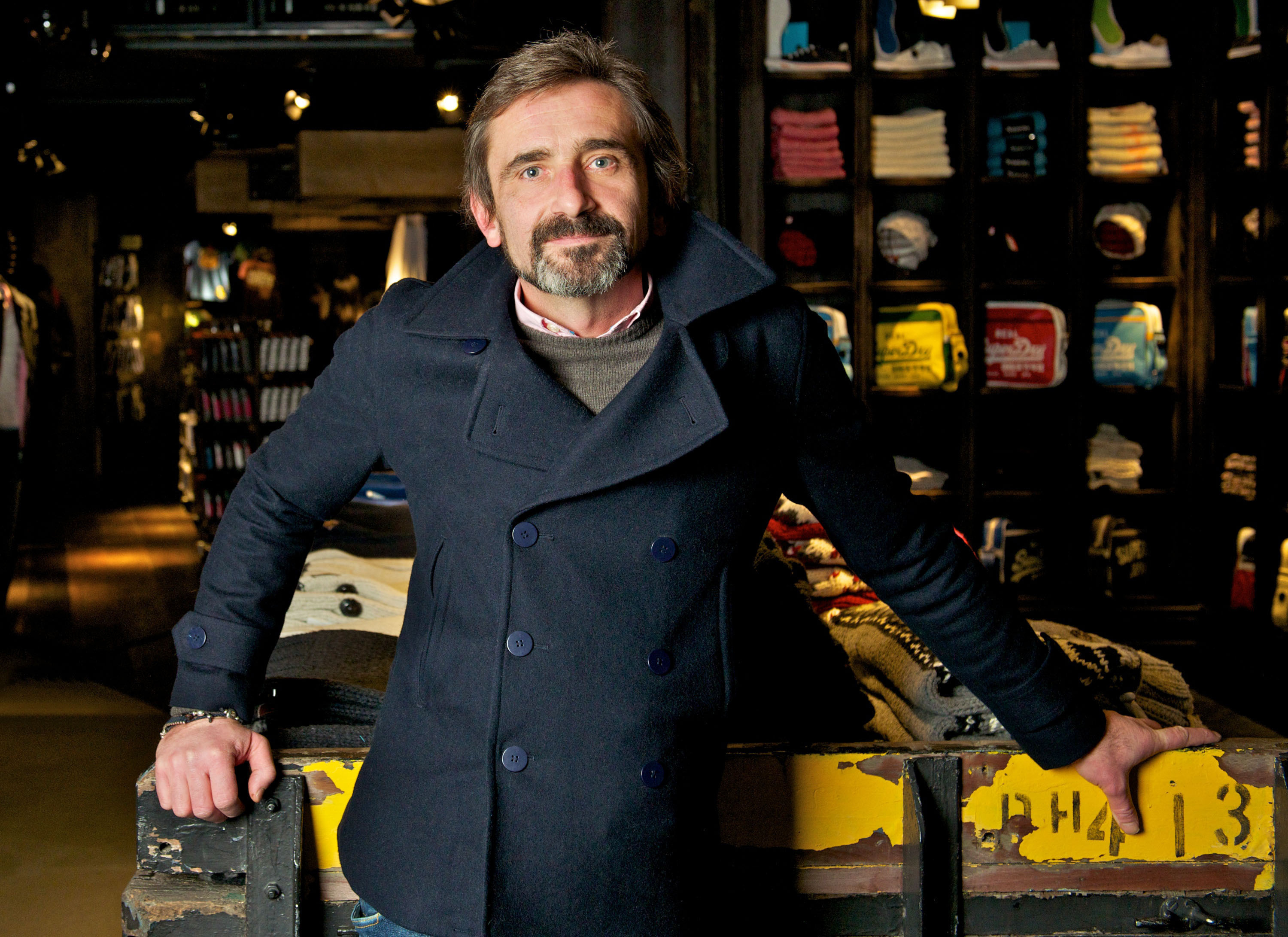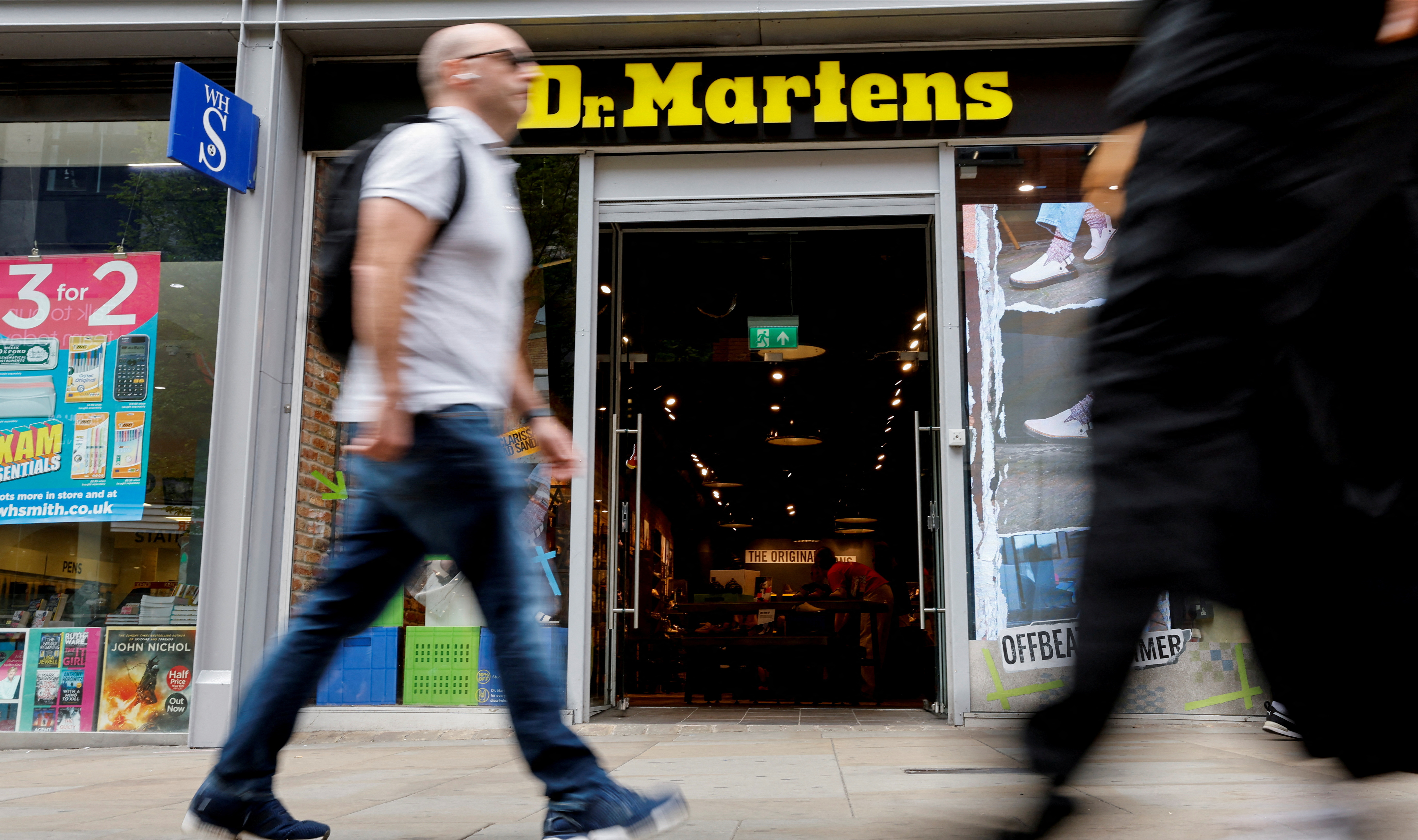SUPERDRY has warned it will go bust unless it quits the stock market and pushes through an aggressive plan to cut its rent bills and business rates.
Founder and chief executive Julian Dunkerton said a hefty restructuring was the only option after the clothing firm suffered “a series of little cuts that has made life tougher”.
The troubled retailer yesterday tabled a plan to reduce the rents on 39 of its 100 shops and lower its business rates with councils.
Existing shareholders will then be stuck, invested in a private company where Mr Dunkerton will have control.
He plans to spend £10million issuing new shares in an unlisted company, which will pump in fresh cash and increase his stake beyond 26 per cent.
The boss, who founded the business in 2003, told The Sun he believed Superdry’s brand still had a future and it was “one of the last” retailers on the high street to do a restructuring.
He said: “I love this business, I love the people and we are doing this to enjoy the next 20 to 30 years.
“We are doing this to protect the company and jobs.”
The debacle marks the downfall of a British brand whose Japanese logo-covered clobber was once worn by a string of A-list stars.
Mr Dunkerton blamed the company’s woes on lockdown, Brexit, the end of tourist tax relief and previous management.
He returned to save the brand in 2019 but almost its entire market value has been wiped out since then.
Its shares yesterday tumbled a further 22 per cent to value it at just £6.1million.
Booted out
THE boss of Dr Martens quit as the firm’s shares took a kicking yesterday.
Kenny Wilson exited as chief executive amid warnings profits could shrink to just a third of the current level.
Shares fell to 65.80p — a dip of more than 30 per cent — leaving the business valued at £913million.
It has now lost 90 per cent of its value since private equity firm Permira gave it a stock market listing in 2021.
Mr Wilson said it was the “right time to hand over”.
He will be replaced by chief brand officer Ije Nwokorie.
Critics have questioned whether the firm suited being listed.
Last month one shareholder called on it to consider a sale and said remaining public was “no longer in the best interests of shareholders”.
Pay rises prevent rate cut
WORKERS are still getting inflation-beating pay rises but strong wage growth will likely mean interest rates will stay higher for longer.
Official figures yesterday showed that regular pay growth was six per cent in February, higher than the 5.8 per cent expected by analysts.
Real pay growth, which strips out inflation, hit 2.4 per cent — the highest since July 2021, according to the Office for National Statistics.
Wage growth has outstripped inflation since last June as companies boosted pay to help staff in the cost-of-living crisis.
The Bank of England fears a wage spiral will make inflation harder to tackle, partly because firms may hike prices to afford higher staff pay.
Markets are now betting that interest rates won’t be cut until August.
Clare Lombardelli, soon to join the Bank as a rate-setter, yesterday told MPs that it was too soon to say when they will be lowered but it was clearly “the direction of travel”.
Energy refunds
SCOTTISH Power is handing back £1.5million to customers after it made them pay too much during the energy crisis.
The firm referred itself to Ofgem when it realised it overcharged 1,699 direct debit customers by £149 by putting them on a higher standard credit rate.
The error ran between 2015 and 2023, including the period when prices hit record highs.
Customers will get back an average £294 in compensation as Scottish Power is also making a goodwill payment.
A Ream victory
THE US suitor for packaging giant DS Smith said it will seek a London listing after winning a bidding war.
DS Smith, which makes boxes for Amazon, yesterday agreed to a £5.8billion all-share takeover by Memphis-based International Paper.
The takeover beat a £5.1million deal between DS Smith and British rival Mondi.
International Paper said it will seek a secondary listing.
It does not intend to close mills but 400 office jobs could be at risk.
The FTSE-100 firm employs 4,500 staff in the UK.
Saving a bag load
WEALTHY shoppers have cut back on Louis Vuitton bags and Moet Hennessy bubbly, knocking sales growth at LVMH.
Sales rose just two per cent to £8.9billion in the first quarter of this year — the group’s worst performance in three years.
B&M store aim
DISCOUNT retailer B&M aims to open 90 stores in the next two years as cash-squeezed shoppers drive up sales.
Boss Alex Russo said the chain had “significant profitable growth potential”.
The firm, which last year bought 51 shops from bust rival Wilko, saw sales jump 10.1 per cent to £5.5billion in the year to the end of March.
Total B&M UK sales rose 8.5 per cent to £4.4billion, helped by new store openings.
Its cut-price grocery chain Heron Foods grew sales by 15.3 per cent to £560million.















